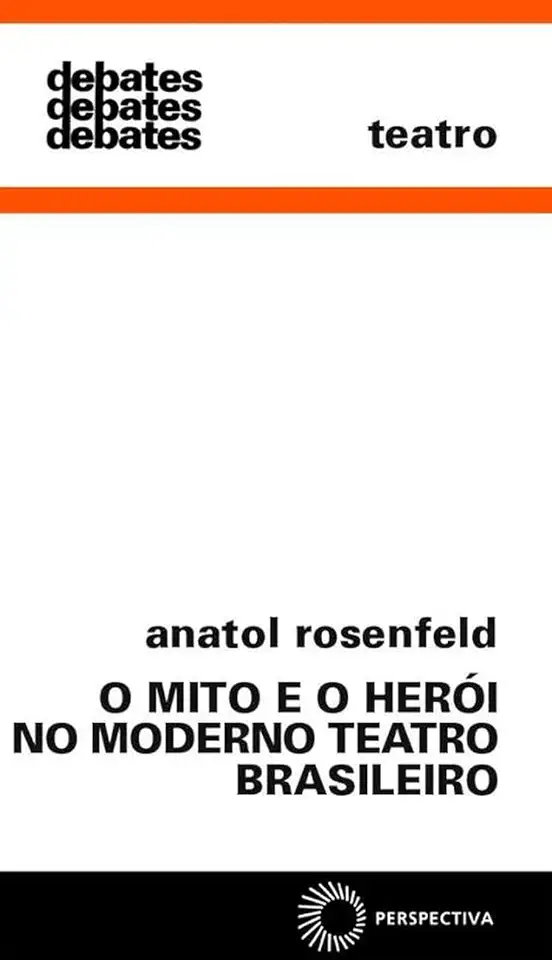
The Myth and the Hero in Modern Brazilian Theater - Anatol Rosenfeld
The Myth and the Hero in Modern Brazilian Theater: A Journey into the Heart of Brazilian Culture
Introduction: Unveiling the Essence of Brazilian Theater
In the realm of performing arts, few countries can boast a theatrical tradition as vibrant and captivating as Brazil. With its rich tapestry of cultural influences, Brazil has given birth to a unique brand of theater that seamlessly blends the mythical and the heroic, creating a theatrical experience that is both enchanting and thought-provoking. In his seminal work, "The Myth and the Hero in Modern Brazilian Theater," Anatol Rosenfeld embarks on an enthralling journey, delving deep into the heart of Brazilian theater to uncover the profound connection between myth, heroism, and the Brazilian psyche.
Chapter 1: The Roots of Brazilian Theater: A Fusion of Cultures
Brazil's theatrical heritage is a fascinating amalgamation of indigenous, European, and African influences, each contributing its unique flavor to the nation's theatrical landscape. Rosenfeld meticulously traces the evolution of Brazilian theater, from its humble beginnings in religious rituals and folk performances to the emergence of a modern theatrical movement that embraced the power of myth and heroism to reflect the nation's complex social and political realities.
Chapter 2: The Mythic Hero: A Symbol of Brazilian Identity
At the core of Brazilian theater lies the concept of the mythic hero, a larger-than-life figure who embodies the hopes, dreams, and aspirations of the Brazilian people. Rosenfeld explores the various archetypes of the mythic hero that populate Brazilian plays, from the trickster figure of Exu to the tragic hero of Macunaíma. These mythic heroes serve as mirrors to Brazilian society, reflecting its struggles, triumphs, and indomitable spirit.
Chapter 3: Myth and Ritual: The Theater of Transformation
Brazilian theater is not merely a form of entertainment; it is a powerful tool for social transformation. Rosenfeld delves into the ritualistic aspects of Brazilian theater, demonstrating how it draws upon ancient traditions to create a transformative experience for both performers and audiences. Through the use of masks, music, and dance, Brazilian theater becomes a sacred space where individuals can confront their inner demons and emerge renewed.
Chapter 4: The Political Hero: Theater as a Force for Change
In Brazil, theater has often been a vehicle for political expression, a means to challenge social injustices and promote social change. Rosenfeld examines the works of influential playwrights such as Augusto Boal and Chico Buarque, who used their plays as platforms to critique the oppressive regimes of their time. Brazilian theater becomes a powerful weapon in the fight for democracy and human rights.
Chapter 5: The Hero's Journey: A Reflection of Brazilian Society
Rosenfeld draws parallels between the hero's journey in Brazilian theater and the broader journey of Brazilian society itself. He argues that the struggles and triumphs of the mythic hero mirror the nation's own quest for identity, unity, and progress. Brazilian theater becomes a microcosm of Brazilian society, reflecting its complexities, contradictions, and aspirations.
Conclusion: The Enduring Legacy of Brazilian Theater
In "The Myth and the Hero in Modern Brazilian Theater," Anatol Rosenfeld presents a comprehensive and insightful analysis of Brazilian theater, revealing its deep connection to myth, heroism, and the Brazilian soul. This book is a must-read for anyone interested in theater, Brazilian culture, or the power of storytelling to shape a nation's identity. Immerse yourself in the vibrant world of Brazilian theater and discover the enduring legacy of its mythic heroes.